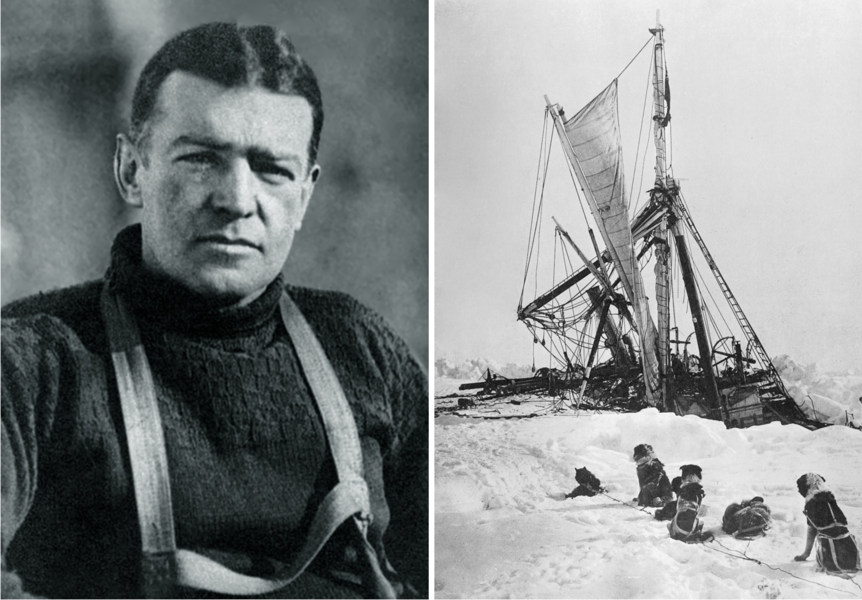Roald Amundsen, Robert F. Scott – names of adventurers that everyone knows. Ernest Shackleton is different: to find out about him, you have to take a closer look at polar expeditions in the early 20th century. None of his expeditions reached their destination. His merit lay elsewhere: in his unwavering leadership.
Shackleton proved this above all during the great expedition he undertook in 1914. With a crew of scientists, craftsmen and sailors, he wanted to cross Antarctica for the first time. But the mission failed on the way: the sailing ship Endurance first froze in the pack ice – and was ultimately crushed by the drifting masses of ice.
From then on, the men’s only concern was to return home alive. They tried to proceed on foot, the heavy lifeboats in tow – but as it turned out, with no chance of reaching safe mainland. For months, the team camped on the ice until the summer came.
In their lifeboats, the men made it across stormy seas to the barren Elephant Island. Together with five men, Shackleton risked everything and continued on to South Georgia – where they actually reached a rescue whaling station after weeks. After a two-year odyssey, the entire team returned safely to Britain in 1916.
Presence, structure and humor – essential under uncertainty
Thanks to the records of crew members, it is well documented how the expedition leader acted in critical situations. In the book “Shackleton’s Way”, authors Margot Morrell and Stephanie Capparell derive rules for the management of companies. Especially these:
- Responsibility and optimism. Talk a lot with your employees. Right at the beginning of a crisis, emphasize that you take responsibility for everything that comes your way. Convey confidence that your company will overcome the crisis.
- Weigh up and make clear decisions. If you are dealing with concrete problems, think through various options in detail. Involve the team in finding solutions but make decisions yourself.
- Forget failures and look ahead If something does not work as you planned, leave it behind. Regrets only waste energy.
- Involve “difficult” colleagues Take care of the pessimists in your team and resist the impulse to avoid them. Try to win over these people so that they follow your plans.
- Bring back cheerfulness. The higher the stress level, the more important is a humoros way to deal with it. When you chat with your colleagues in a lighthearted tone this will help them to relax.
Shackleton story as an impulse for a management workshop
Companies are rarely a matter of life and death. How can the Shackleton rules be applied here in a meaningful way? In our experience, the adventurous story is ideal as an impulse for a management workshop. This leads to a reflection:
- Two managers from the same level but from different areas discuss their situation: Do they have to lead differently in the crisis?
- They share their key points with the group. Example: offer a dialog even if there are no new developments – for example in the form of a daily check-in.
Reflection should not cause managers to put themselves under additional pressure. On the contrary: they not only take away new ideas, but also recognize what is already working well.
Book recommendation:
Margot Morrell, Stephanie Capparell: “Shackleton’s Way – Leadership Lessons from the Great Antarctic Explorer”.
Movie tip:
The wreck of the “Endurance” was not found until 2022 – great documentary by National Geographic about the search for clues and the story of Shackleton, with breathtaking original footage by expedition photographer Frank Hurley.




